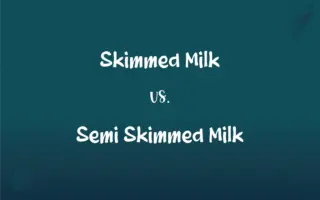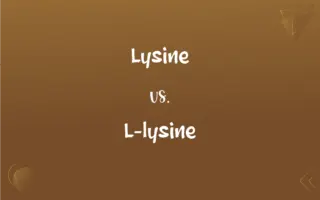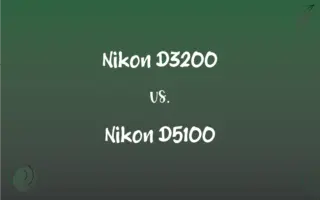Book vs. Novel: What's the Difference?
Edited by Aimie Carlson || By Harlon Moss || Updated on October 5, 2023
A book is any written, printed, or electronically published collection of pages, while a novel is specifically a lengthy, fictional narrative.

Key Differences
A book broadly refers to any written or printed work that is bound together and encapsulates any genre, topic, or subject matter. A novel, however, is a type of book that specifically refers to a lengthy fictional narrative, characteristically involving characters, a plot, and a significant degree of realism. These two terms, while closely related, are distinguishable in their scope and application.
Books encompass a myriad of categories, not limiting themselves to fiction, as they can involve non-fiction, poetry, drama, scientific papers, and more. In contrast, a novel strictly adheres to a fictional domain, often illustrating a story that explores diverse characters, plots, and themes, utilizing narrative strategies and a prose style of writing. The scope of a book is expansive, accommodating various types and forms of content, whereas the novel maintains its distinctive narrative style.
Educational materials, guides, anthologies, or reference materials are all readily classified as books due to their bound nature and informative or literary content. Novels are never non-fiction, instructional, or purely informational since they are primarily crafted from the author's imagination, intending to entertain and possibly convey deeper symbolic or thematic messages to the reader.
Books can be illustrated, like children’s books, or consist of varied content forms like text and graphics, and span across an array of subject matters, from historical accounts to scientific discoveries. Novels inherently convey a story and do not include true accounts or direct information sharing, as their primary focus lies in narrative storytelling, often delving into human experiences and emotions.
While every novel is a book, not every book is a novel. This key differentiation emerges from the intrinsic nature of novels to be bound narratives of fictional stories, distinct from the generalized, encompassing term of "book," which can be attributed to any bound written or printed material. This distinction clarifies the specificity and exclusivity of novels within the broader category of books.
ADVERTISEMENT
Comparison Chart
Content Type
Can contain any content type: fiction, non-fiction, poetry, etc.
Strictly fictional prose narrative.
Purpose
Can be informative, educational, entertaining, etc.
Primarily aimed at storytelling and entertainment.
Length and Structure
Can be of any length and structure.
Typically lengthy with a structured plot.
Genre Scope
Encompasses all genres.
A specific genre within books.
Inclusion of Real Facts
Can include factual and real information.
Does not contain real facts; it’s imaginary.
ADVERTISEMENT
Book and Novel Definitions
Book
Can be either fiction or non-fiction.
The book provides a thorough history of the Roman Empire.
Novel
Explores human experiences through imaginary characters and events.
The novel delves into the protagonist’s emotional turmoil and eventual self-discovery.
Book
A physical or electronic compilation of written content.
She published her first book at the age of twenty.
Novel
A genre within the broader category of books.
The novel belongs to the fantasy genre, featuring magical realms and creatures.
Book
May contain text, illustrations, or both.
The book is admired for its beautiful illustrations and compelling text.
Novel
A lengthy work of fiction in prose form.
The novel explores themes of love, loss, and redemption.
Book
Can encompass any genre or subject matter.
This book explains the fundamental theories of quantum physics.
Novel
Contains elements like characters, plot, and setting.
The novel sets a poignant love story against a historical backdrop.
Book
A set of printed or written pages bound together.
I read the book in one sitting because it was so engaging.
Novel
Primarily focused on narrative storytelling.
The novel weaves a complex narrative spanning multiple generations.
Book
A set of written, printed, or blank pages fastened along one side and encased between protective covers.
Novel
A fictional prose narrative of considerable length, typically having a plot that is unfolded by the actions, speech, and thoughts of the characters.
Book
An e-book or other electronic resource structured like a book.
Novel
The literary genre represented by novels.
Book
A printed or written literary work
Did you ever finish writing that book?.
Novel
Strikingly new, unusual, or different.
Book
A main division of a larger printed or written work
A book of the Old Testament.
Novel
Newly made, formed or evolved; having no precedent; of recent origin; new.
FAQs
Can a book contain true, factual information?
Yes, books can contain factual information, unlike novels which are fictional.
Can a book contain images?
Yes, books can contain images, texts, or a combination of both.
Are novels only available in print?
No, novels can be available in print and electronic formats.
Can a novel be based on a true story?
A novel can be inspired by true events but is inherently a work of fiction.
Can a novel be written by multiple authors?
Yes, a novel can have multiple authors, often called co-authors.
Do all novels belong to a specific genre?
While many novels fit into established genres, some defy categorization or span multiple genres.
What is a book?
A book is a compilation of written or printed materials bound together.
Are novels only written in prose?
Generally, yes - novels are characterized by their prose format.
Can a book be a work of fiction?
Yes, a book can be a work of fiction, and if it is a lengthy narrative, it might be a novel.
Are novels always long?
While novels are typically lengthy, there is no strict rule regarding their length.
Can a book be written in verse?
Yes, books can be written in verse, whereas novels are typically in prose.
Can a book be non-fiction?
Yes, a book can be non-fiction and contain factual and real information.
Can a book be part of a series?
Yes, books, including novels, can be standalone or part of a series.
Can a novel be written in the first person?
Yes, novels can be written in the first, second, or third person.
What is a novella?
A novella is shorter than a novel but longer than a short story, often focusing on a single, impactful event.
How does a novel differ from other books?
A novel is a type of book that specifically features a lengthy, fictional narrative.
What are the essential elements of a novel?
Essential elements of a novel include characters, plot, setting, and a structured narrative.
Is every book a novel?
No, while every novel is a book, not every book is a novel.
What is an e-book?
An e-book is an electronic version of a book, which can be read on digital devices.
What is the purpose of a book?
Books can serve various purposes including educating, informing, or entertaining.
About Author
Written by
Harlon MossHarlon is a seasoned quality moderator and accomplished content writer for Difference Wiki. An alumnus of the prestigious University of California, he earned his degree in Computer Science. Leveraging his academic background, Harlon brings a meticulous and informed perspective to his work, ensuring content accuracy and excellence.
Edited by
Aimie CarlsonAimie Carlson, holding a master's degree in English literature, is a fervent English language enthusiast. She lends her writing talents to Difference Wiki, a prominent website that specializes in comparisons, offering readers insightful analyses that both captivate and inform.




































































